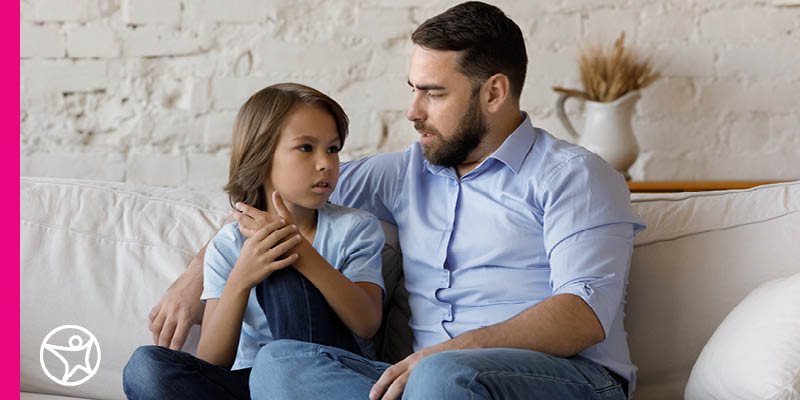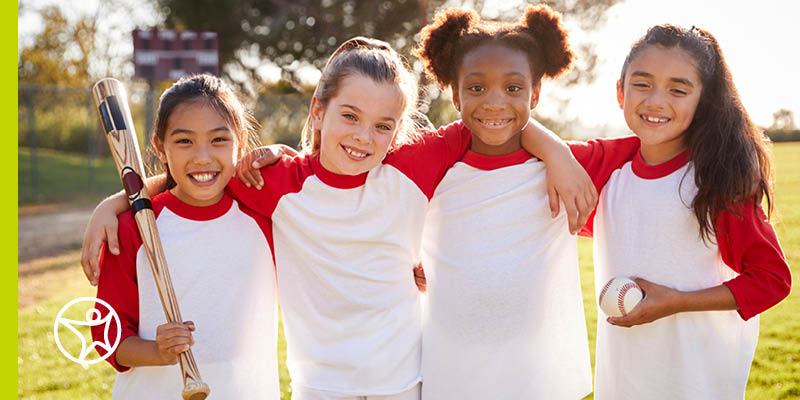It’s Important for Students to Have a Safe Place to Learn
byKaren Muston
5 min to read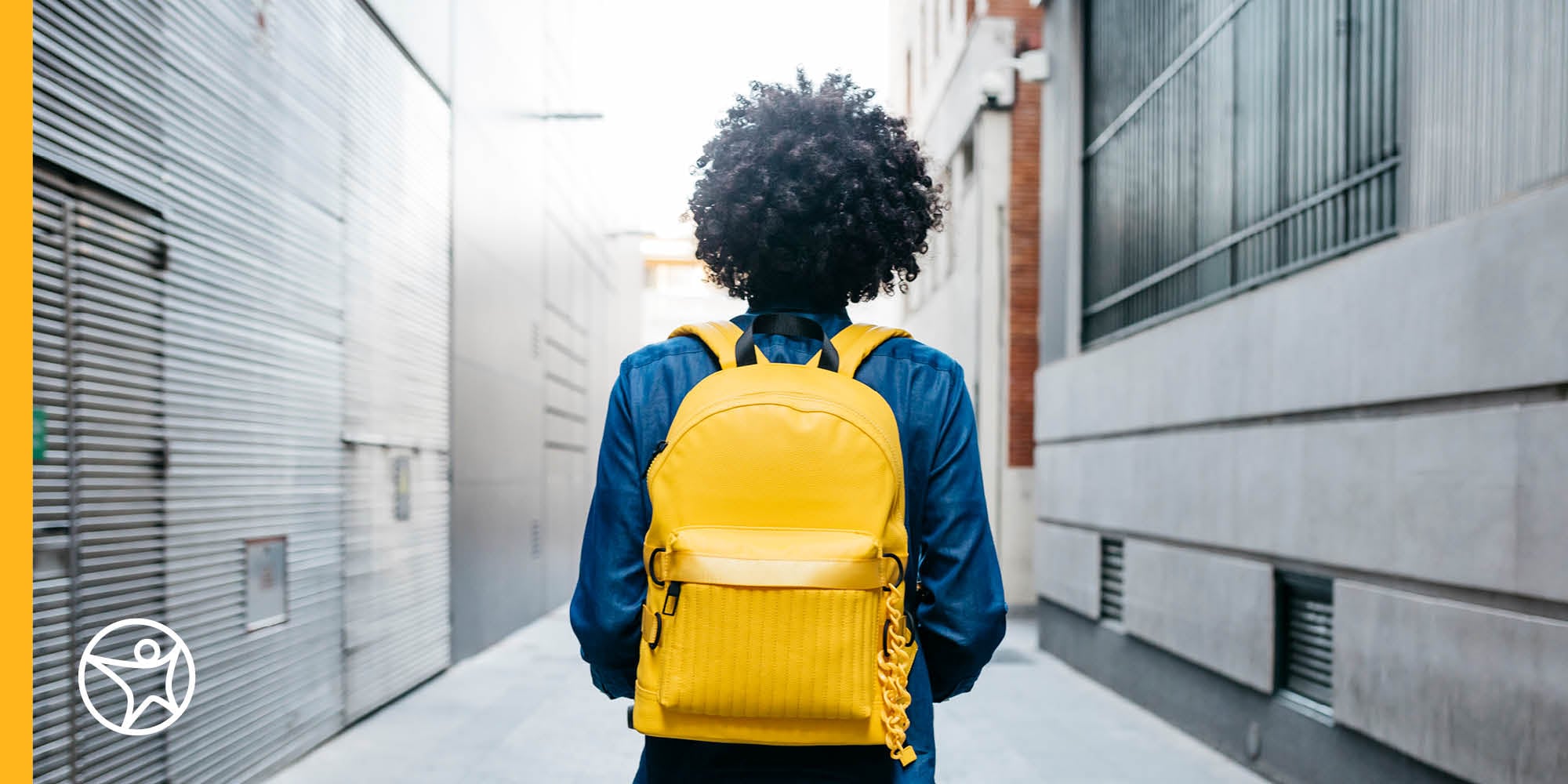
If I asked you to close your eyes and picture your “happy place,” you would likely envision a place that makes you feel peaceful, content, and protected. Our need to feel safe has been tied to our feelings of happiness and contentment since early childhood and can influence our relationships, mental health, and overall success.
That need to feel safe extends to all of our environments. For adults, that’s our home, neighborhood, and where we work. For children, that includes a safe learning environment—students need to feel safe at school.
Why Is School Safety Important?
An unsafe learning environment—even if it is just a perception of being unsafe—can have a profound impact on a student’s overall well-being and their ability to be successful in school. Students who do not feel safe at school—either emotionally or physically—are more distracted and less successful than their peers. School safety and student achievement are connected; it’s hard to have one without the other.
The good news is that even in uncertain times, parents and educators can help build student resilience and equip them with the skills they need to face what can be an unpredictable and unsafe world.
Safety at School
We all want to do everything possible to ensure that kids and staff are safe—and feel safe—at school. The recent reports of school violence have left many feeling overwhelmed and even more determined to be agents for change.
There are many organizations that are focused on addressing school safety issues and finding real, actionable solutions. People are stepping up and getting involved, which can help ease any anxiety that people can have in the aftermath of school tragedies.
To get involved, initiate conversations with your local school and community leaders about the importance of safety in school and work together to create a safe and supportive school for all students.
When it comes to school safety issues and finding a safe educational environment for your child, it’s important to do your research. Safe schools are those that promote the protection of all students, both physically and emotionally.
Understanding how the environment affects student learning and the factors that define a safe school is important, such as how the school responds to a crisis and the emotional support programs that are in place. Many families have found that choosing a quality, virtual public school where their child can learn from the safety and security of their own home is the right answer for their child.
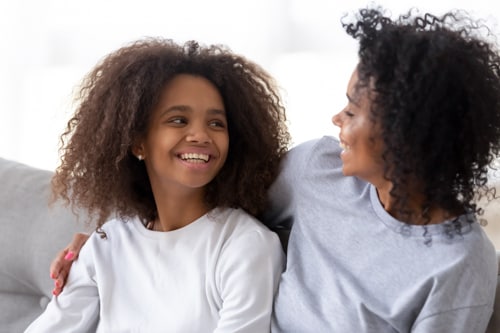
Help Your Child Feel Safe
Feeling safe and being safe are two different things. We can feel safe and not be in a healthy situation and the opposite is also true; we can feel unsafe while not being in any danger at all. Our bodies are wired with an alarm system meant to protect us, but sometimes our emotions can convince us otherwise.
It’s not unusual in the wake of a school tragedy for kids to feel afraid to go to school or to show signs of anxiety that appear in different ways, depending on their age. Preschool children may become clingy or begin wetting the bed. Elementary or early middle-school children may have trouble sleeping or even become aggressive or fearful. Upper middle school and high school children may deny they are upset and hide their true feelings. They may experience anxiety, depression, or sleep disturbances.
Should your child show any of these symptoms for longer than two to four weeks, get help from your school counselor, mental health professional, or pediatrician.
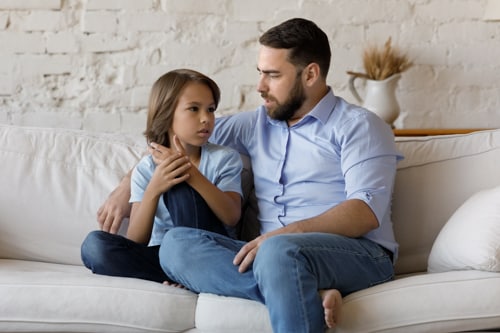
Tips to Help Your Child Cope with School Tragedies
If your child is feeling emotional about recent school tragedies or they are afraid of school or going out to other crowded places they used to enjoy, here are some tips to help kids cope:·
- Remain calm. When parents are afraid, children become even more afraid. It’s okay to show emotions, but if you are feeling intense emotions, be sure to express those privately. You want to reassure them that they are safe.·
- Limit exposure to media. Violence in the media can increase feelings of fear.·
- Validate feelings. Create a safe space for kids to say how they are feeling, and encourage them to write, draw, or even spend extra time with their friends.·
- Develop a safety plan. We tend to feel safer when we can predict or control situations. While not everything is predictable, we can teach kids what to do in the event of an emergency (memorize phone numbers, addresses, call 911, etc.)·
- Get involved. Encourage kids to take appropriate action when they feel someone else’s emotional or physical safety is at risk. Teach them how to report and support others in those situations.
Our kids deserve to learn in a space that, for the most part, feels like their “happy place.” Online school provides a way for students to learn from a high-quality curriculum in the safety of their own homes with the support of their families, ensuring their school experience aligns with their family’s values.
Many families have chosen virtual education for their students at online schools like Connections Academy® as a way to ensure their child will be physically and emotionally safe while learning. The Connections Academy community welcomes and embraces students from all cultures and backgrounds, and prioritizes providing a safe learning environment free from bullying. Connections Academy students can collaborate and socialize with their peers online from the safety of their own homes.
All Connections Academy students benefit from the support of school counselors, who offer resources for mental health, college/career readiness, and social/emotional issues.
If you are interested in learning more about Connections Academy to see if it is right for your student, please join one of our information sessions.
About the Author
Karen Muston is a school counseling consultant for Pearson Virtual Schools, where she provides support and guidance for virtual school counselors across the nation. She is a certified school counselor with over 18 years of experience in education and over nine years of experience as a virtual school counselor. She also holds a B.S. in English and psychology, an M.S. in psychology and counseling, and a teaching certification in English. Additionally, she is a certified AFSP (American Federation for Suicide Prevention) suicide bereavement group facilitator and a member of the ASCA (American School Counselor Association).

